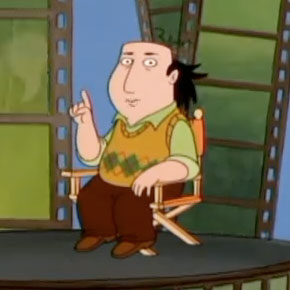Most of the time, the articles I post here are first drafts. This is especially true in the case of obituaries, of course, because I am getting them posted as quickly as I can. There are also more times than I care to admit when I’ve gotten busy or distracted and end up posting at or even just beyond the minute I schedule my articles as due. I try to take a little time to read it over for spelling and grammatical errors, but we don’t have any copy editors on this site; we’re all responsible for our own editing, and I’m sure I miss things.
However, I have taken real writing classes, and I know the value of constructive criticism. I’ve workshopped pieces, both as the writer and as a reader. I’ve taken a bit of journalism, too, and I know how to properly handle that aspect of things. I’ve talked before about how you don’t have to know how to do a thing in order to know when it’s been done badly, but what I think few people seem to realize is that criticizing well and in a helpful manner is itself a skill, and it’s one that is valuable in its own right.
Now, admittedly, the best time to get that criticism is before you put your art out there in public view in the first place, and there have been several pieces where I’ve gone out of my way to get them written early so I could make sure they worked. When you write a tribute to Dr. Seuss in rhyme, you get at least one or two people to vet that thing for you, is all I’m saying. (Wait until I get around to Cookie Monster.) However, there eventually comes the time when you have to quit dinking around and just publish. Or screen. Or perform.
In that moment, the point of criticism becomes “do better next time.” Even if that’s something so simple as “find someone to proofread, because your spelling and grammar are terrible.” You have the option of learning from that or not; it’s on you. Often, the response to criticism seems to be just doubling down—oh, you don’t like it because it’s not for you. You’re missing my point. The failing is with you, not with me, and therefore isn’t a failing at all. Or I will put a speech into my movie talking about how obtuse all critics are; that’ll surely show you and not just bog down the movie for no good reason!
Is all criticism justified? No, absolutely not. And indeed, sometimes “it’s not for you” is a perfectly reasonable response. I’ve never quite understood why so many publications will have someone screen the newest MCU movie who explicitly says they don’t like superhero movies. In the world outside of professional criticism (and whatever you want to call Douglas Laman), people don’t go see movies in genres they don’t enjoy if they can avoid it. I myself can point to work of my own that has an obvious audience and won’t do anything for people who fall outside it.
And, of course, there’s the obnoxious trend of snarking on things for no good reason—I firmly believe that a strong aspect of good criticism is finding the good even in things you don’t otherwise like, or at least being able to see them if they’re there. If you can’t say anything good about anything, the problem is clearly you. But “it’s not for critics” is the dumbest response I can think of, because most people initially become critics out of love of the thing they’re criticizing. It’s when they don’t seem to have done that that criticism feels unjustified and worth ignoring.
I do this for love, but you could still help me out by supporting my Patreon or Ko-fi!


